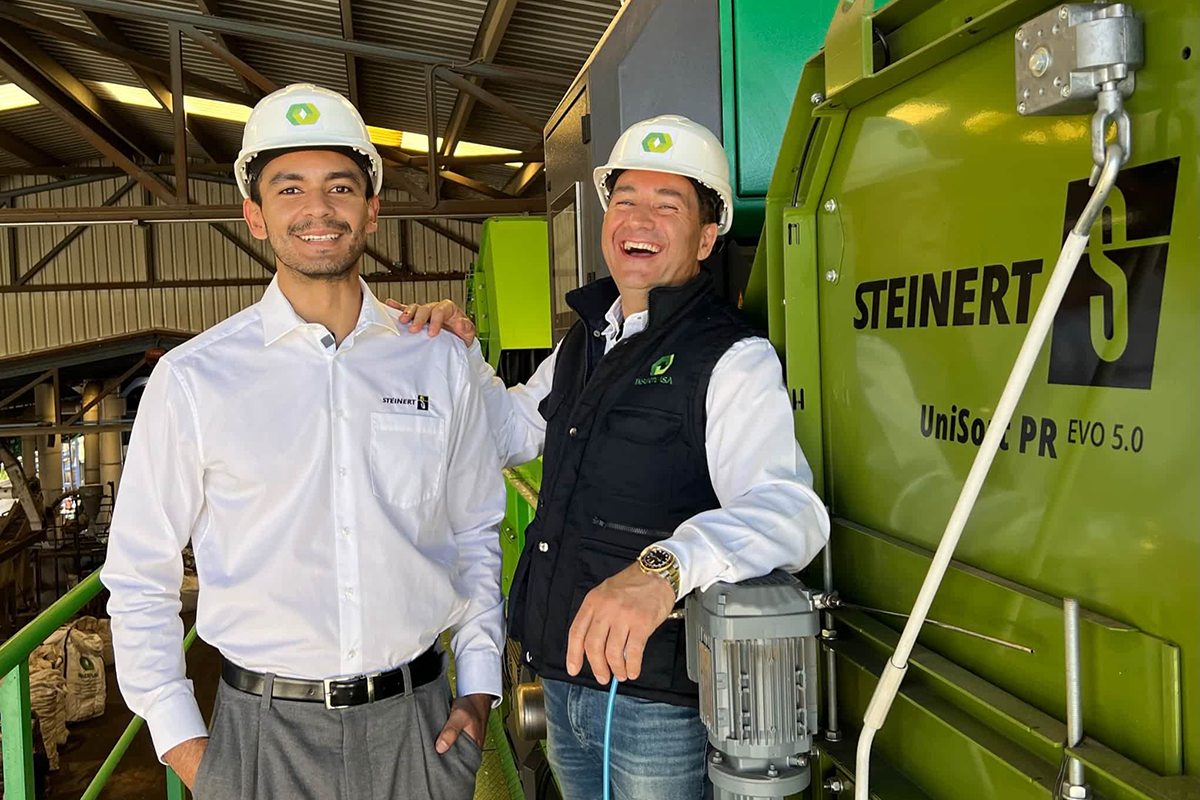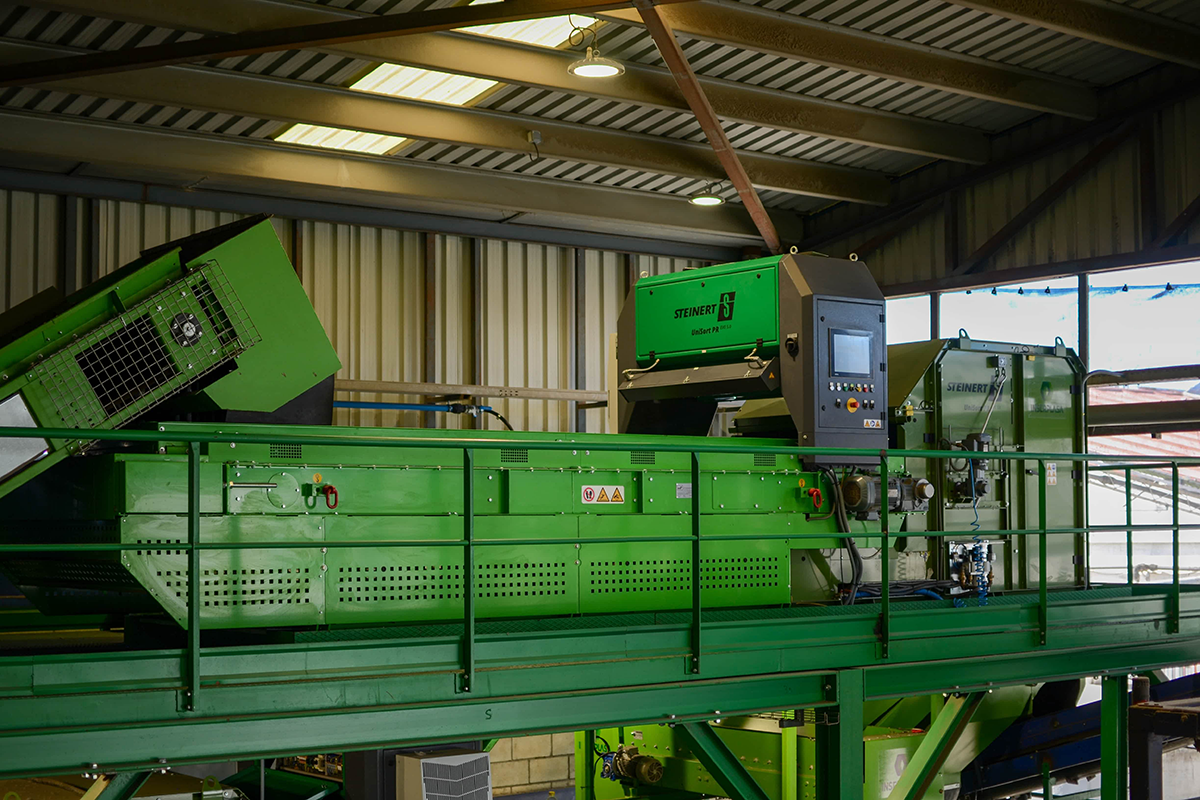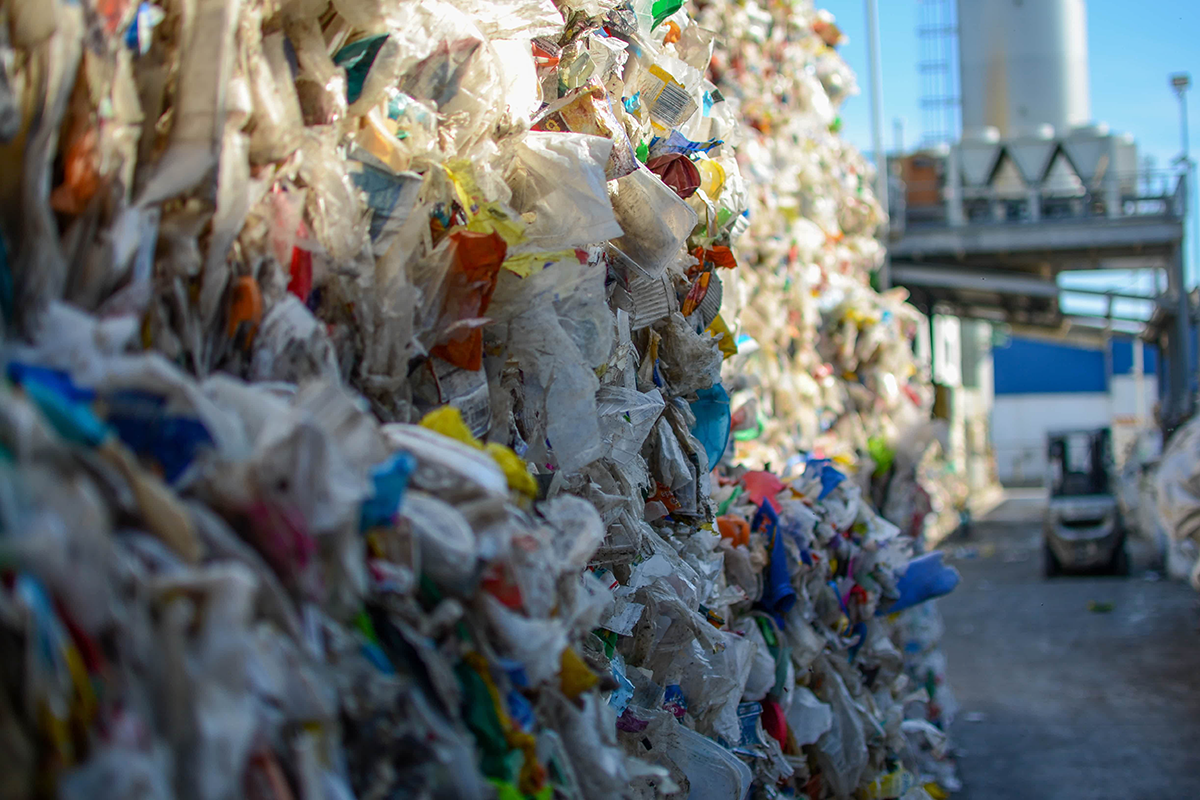
INSERPLASA faces the current challenges of plastics recycling with STEINERT's advanced sorting technology
From humble beginnings to a pioneer in Spain's plastics recycling sector, INSERPLASA's journey has been one of innovation, resilience and excellence. At a time when plastic packaging was becoming more and more complex, the Andalusian company under the leadership of Juanjo Sánchez, was looking for state-of-the-art solutions. Their search led them to STEINERT.
Pioneering Plastic Recycling in Spain
It all started in 1986 when the general manager’s fathers, two childhood friends, began collecting, processing and transforming plastics into something of value at a time when such activities were viewed with scepticism. Navigating unknown territory, they launched a mission of discovery, learning first hand the difficulties of plastic recycling. These early efforts, laid the foundations for a company that would become a leader in environmental solutions in Spain.
When we first started sorting bottles, we could do it by colour. Later, labels were added, which made it a little more difficult, but over the years they became full sleeves around the bottle. Then the situation became more complicated and we looked for help.
Their collaboration with STEINERT was a turning point for INSERPLASA. The process, as one of the founders son, Juanjo Sánchez, remembers, has been both challenging and rewarding. By implementing STEINERT's advanced sorting technologies, INSERPLASA redefined the efficiency and quality of its operations. These technological improvements were not just upgrades; they were game changers that put INSERPLASA at the front of the recycling industry.
The Ecological and Economic Leap
The integration of STEINERT's near-infrared (NIR) sorting systems UniSort PR EVO 5.0 has revolutionised INSERPLASA's operations. These systems use Artificial Intelligence-based sorting programmes and a high-resolution Hyper Spectral Imaging (HSI)/colour sensor combination to detect complex plastic materials, which were previously indistinguishable. In this way, INSERPLASA produces polyethylene (PE, HD-PE, LD-PE), polypropylene (PP) and PET (polyethylene terephthalate) recyclates in different colours.
Sánchez highlights the transformative impact of these technologies. The advanced sorting systems have not only improved the purity and quality of recycled plastics, but also increased operational efficiency. This technological leap has allowed INSERPLASA to expand its capacity and process a wider range of plastic materials than before, while reducing the energy consumption.
Today, INSERPLASA is a benchmark of sustainability and innovation. Its commitment to producing high quality recycled plastic products has not only strengthened its market position, but also underlined its commitment to the environment. The increased capacity and improved economic and environmental footprint are proof of a successful partnership with STEINERT. Together, they show how challenges can be turned into opportunities, leading the way to a more sustainable future.
We liked the robustness, the precision and also the quality convinced us. When you say ‘We are not the cheapest.’ We know that. But there are some components that we know have their price, if you want quality, you have to pay for quality.
Future Perspective of a Sustainable Partnership
Plans are underway to install even more advanced sorting technologies to improve the quality and efficiency of recycled plastics further and to enter new markets with the support of STEINERT's technological expertise. “INSERPLASA has grown not only because we do it well, but also because we join companies that collaborate and do the job well. We try to improve recycling even further. And thanks to people and companies like STEINERT, I’m convinced we will succeed.”
This alliance is a success story of collaboration in advancing sustainability goals. INSERPLASA and STEINERT are setting an example, demonstrating how innovation and environmental responsibility can go hand in hand to create a greener future. “I am very positive. I see good years ahead, very strong and good years. Not easy, but yes, full of work.“
About Steinert
The history of STEINERT dates back more than 130 years: the family-owned, Cologne-based business is one of the world's leading experts in sensor sorting and magnetic separation for waste and metal recycling as well as mining. With 450 employees, STEINERT generates an annual turnover of approximately EUR 180 million. In addition to 50 sales partnerships and joint ventures across the globe, the company has subsidiaries in Germany, Australia, Brazil and the USA.
Media contact
Marianne Grub
Marketing Manager






